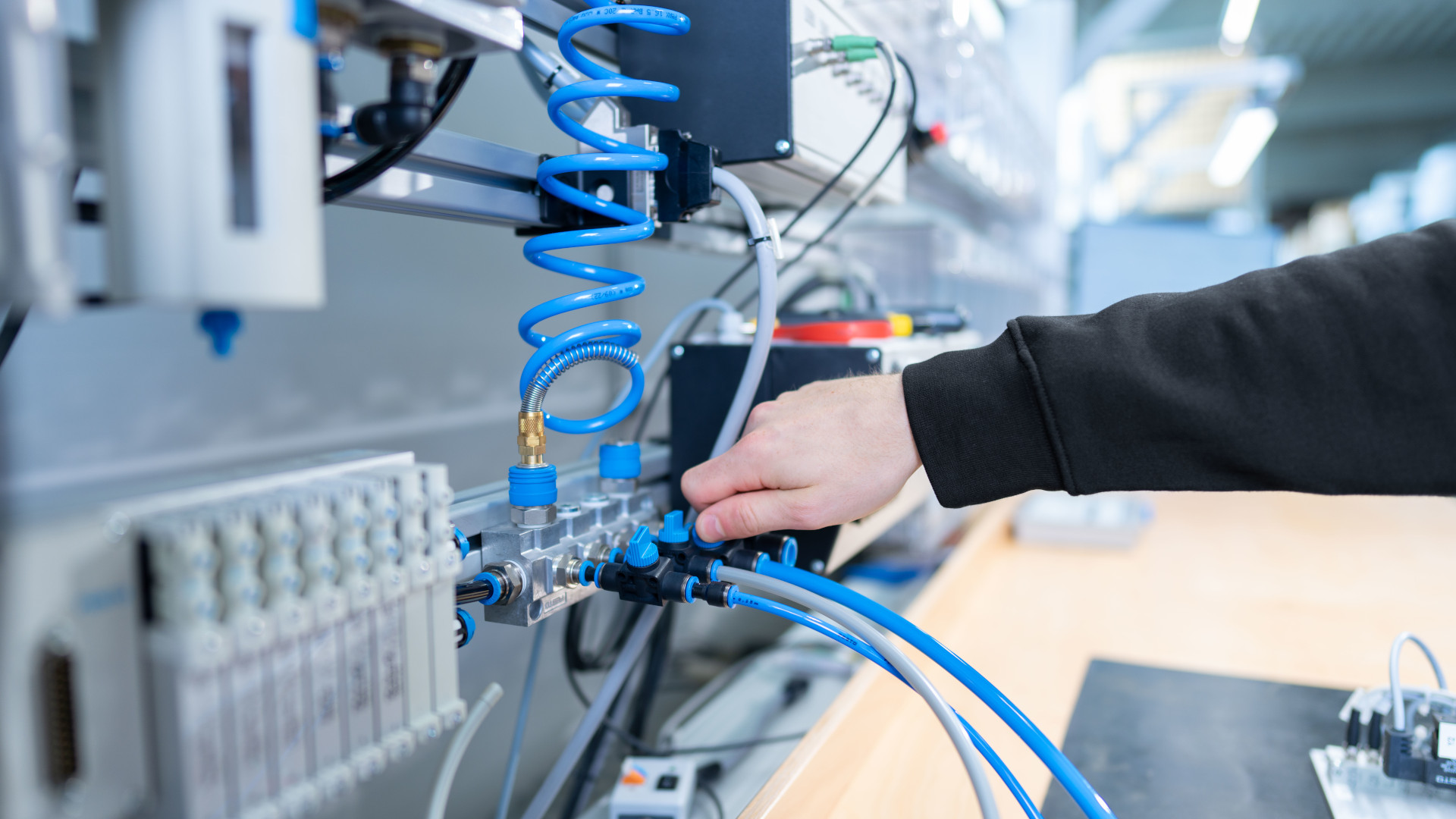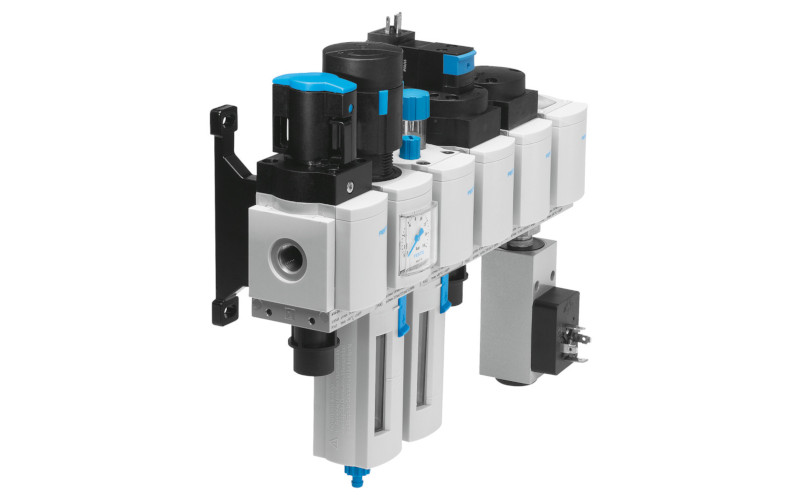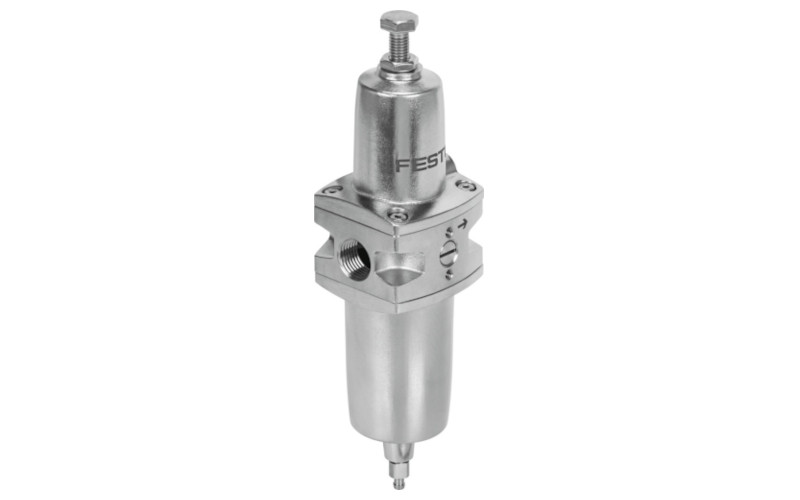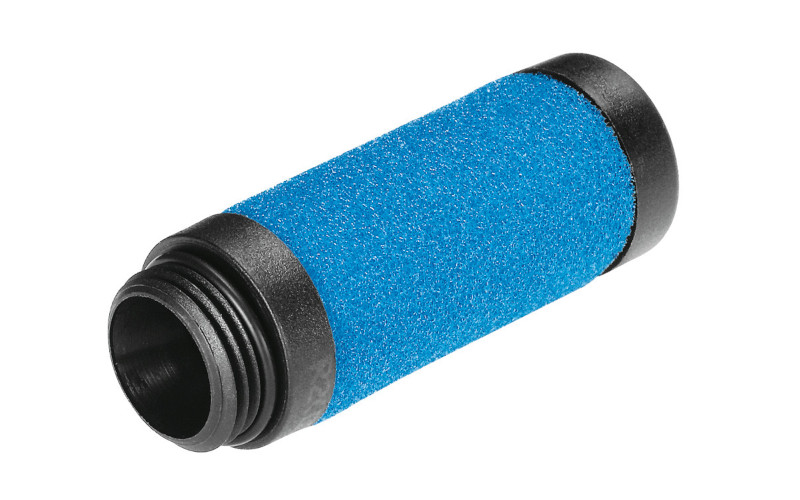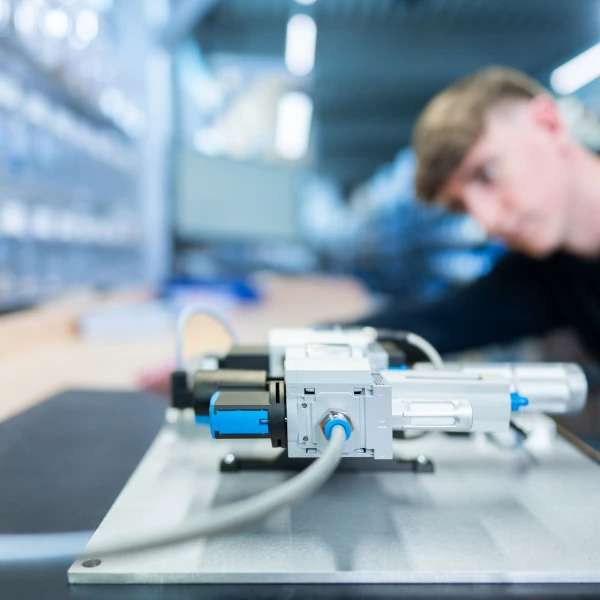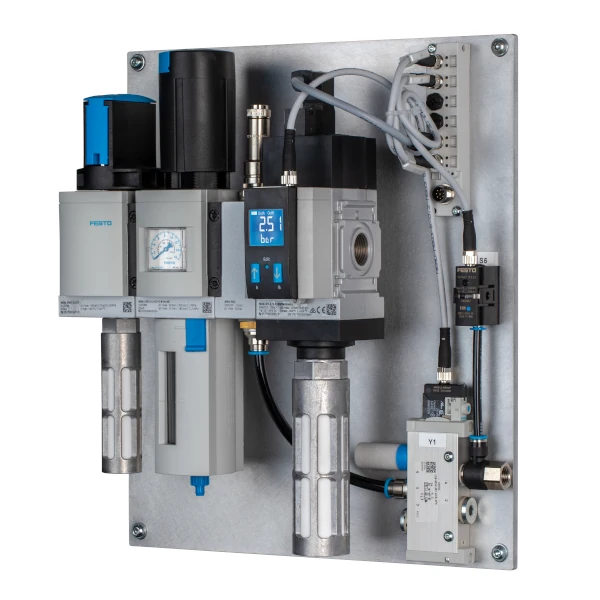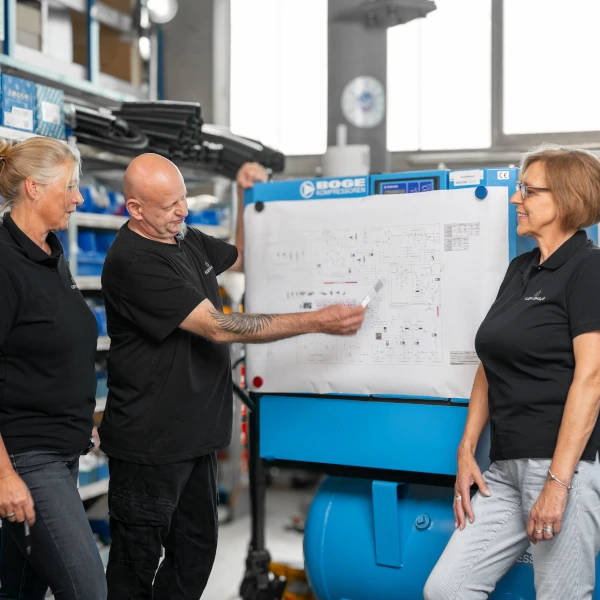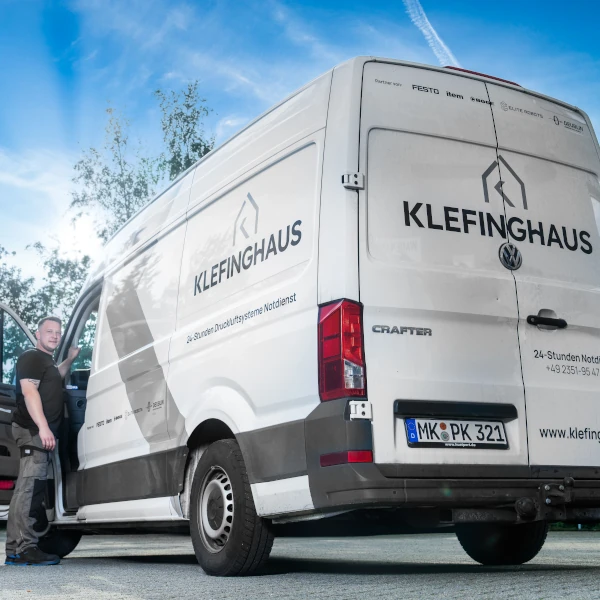Clean compressed air for clean processes
Compressed air has become indispensable in modern industry. However, to ensure that machines, tools, and processes run smoothly, it must be free of contaminants. That is why compressed air filters are so important. They remove dust, water, oil, and other particles from the air before it enters the system.
Compressed air filters from FESTO reliably ensure consistently high air quality. They increase the service life of your systems and reduce maintenance costs. They also contribute to process reliability, especially in sensitive industries such as the food, pharmaceutical, and electronics industries.


